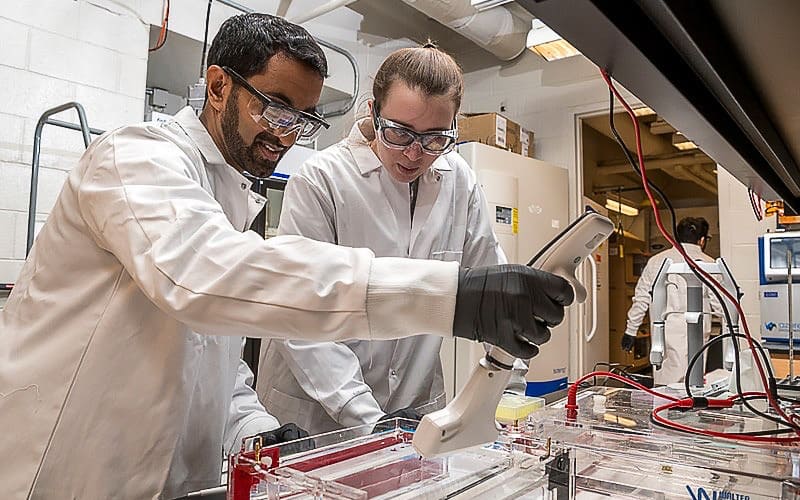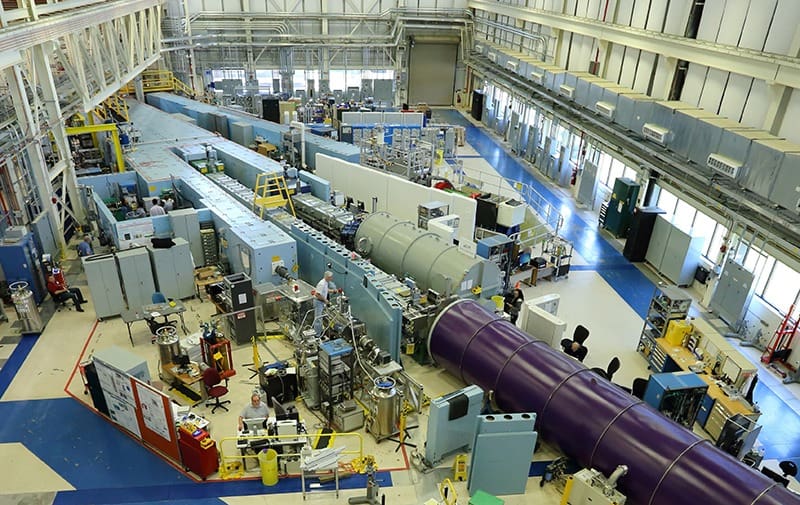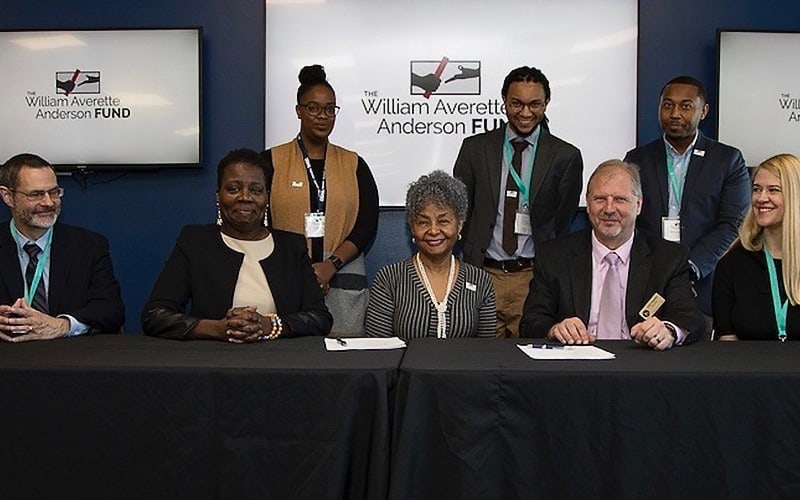 Research & Discovery
Research & Discovery
A Blog Devoted to UD Innovation, Excellence and Scholarship
Research & Discovery
A Blog Devoted to UD Innovation, Excellence and Scholarship
An emerging leader in biosecurity
ABOVE: Using gel electrophoresis, a technique to separate and study proteins and DNA, Kunjapur and his students are exploring ways to modify living cells so that they can produce fuels and other useful chemicals. | Photo by Kathy F. Atkinson
Chemical engineering professor to participate in highly selective fellowship program
Aditya Kunjapur, an assistant professor in the Department of Chemical and Biomolecular Engineering at the University of Delaware, has been named to the Johns Hopkins Center for Health Security’s Emerging Leaders in Biosecurity Initiative fellowship program in 2019.
Kunjapur joins 30 people from 13 U.S. states, Canada, and the United Kingdom who were selected from more than 130 applicants. Throughout the year, the fellows will attend three multi-day workshops, participate in networking opportunities and engage with top experts in domestic and global health security.
Kunjapur and his peers in the Emerging Leaders in Biosecurity Initiative fellowship program will discuss ways to ensure that emerging technologies are not used in ways that endanger human lives or the planet. They contribute a diverse set of expertise including public health, ethics, national defense and more.
Kunjapur brings expertise in synthetic biology, a field devoted to making biology easier to engineer.
“My lab seeks to enable living systems to produce and tolerate the kinds of chemical functional groups and reactions that are often only achieved in non-living environments by chemists,” said Kunjapur, who joined UD in 2019. Many scientists are utilizing microbes for their ability to produce other chemicals, such as fuels, and Kunjapur wants to use biological substances as chemical factories or protein factories.
“I’m very interested in sustainable chemistry using biomanufacturing platforms,” said Kunjapur. “If I achieve my dream of being able to put more and more unusual functional groups either on proteins or small molecules, it starts to blur the lines between what we think of as chemical and biological, and that’s where some of the risks come into play that first got me interested in this biosecurity space.”
As the field of synthetic biology advances, biology is becoming increasingly democratized. Think about the early adopters of computing technology who built computers in their garage. As genetic engineering becomes simpler, hobbyists might start to do it, too. This could accelerate the pace of beneficial discoveries but could also contribute problems around biohazards. People could exploit the science to make weapons, drugs or other illicit materials.





